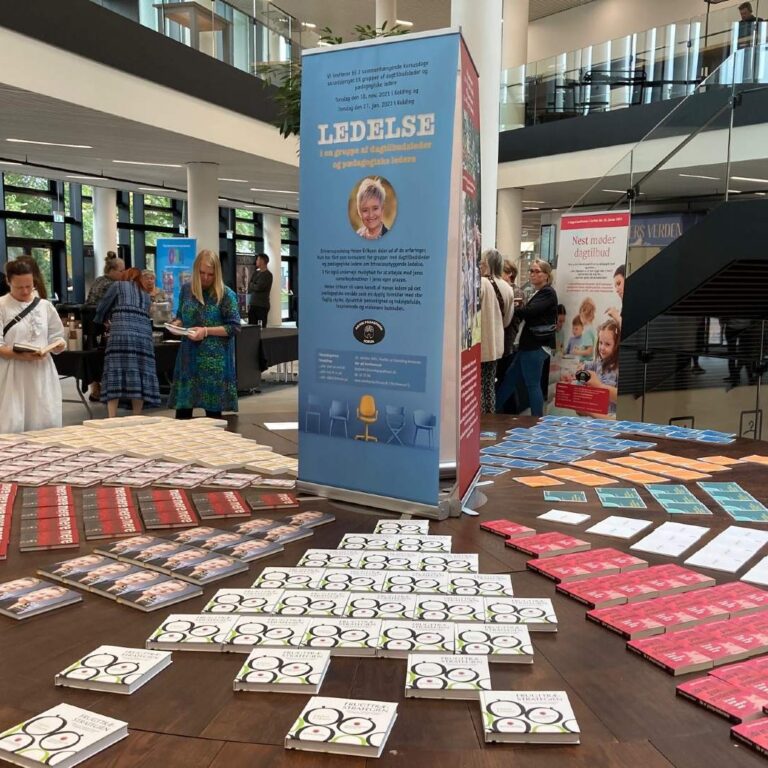January is a perfect time for reflections on the past year and the 365 days that the new year brings.
So, I have decided to start the year by sharing some of my biggest wishes and hopes for the new year with you. And these wishes and hopes resonate with both major and minor tones.
In short, regarding the new year, I have a hope and a wish that politicians and decision-makers start listening much more to our country's citizens and their professional expertise when expressing themselves in public debates. Many of these professional voices are trying to alert politicians with arguments that call for and include the essences of what, among other things, well-being research could contribute to increased well-being in our workplaces.
Therefore, another of my wishes is that we become better at integrating the essences of well-being research into our daily work. With them as a well-being-promoting tailwind, we can begin to counterbalance the prevailing economic growth paradigm with a qualified response. A response that involves a conscious understanding of why ever-increasing documentation, target-setting, and efficiency demands, combined with increased control and surveillance, are highly demotivating and well-being-reducing for both leaders and employees, swiftly sending meaningfulness into exile. We need to practically integrate knowledge about what we can actually do in a work context to create and maintain well-being both in the short and long term.
It seems to me that now, more than ever, is the time for society to realize how we have streamlined and dehumanized our organizations, businesses, and employees to such an extent that we are left with a large workforce struggling to find meaning, coherence, and joy at work.
Recently, I was looking at the current and not exactly encouraging well-being statistics, which are just another testimony to how an overriding growth paradigm creates increasing discontent at almost all levels. Here are some of the numbers from the recent months' surveys that caught my attention:
- Four out of 10 believe that work pressure is too high often or all the time (Epinion for HK Privat).
- Only one in four leaders feels well-equipped to help a stressed employee (Userneeds).
- Almost half of all stressed FOA members believe it is shameful to take sick leave (FOA).
- More than one-fifth of leaders do not feel they receive the support they need from above (FTF).
- And the number of 'warm hands' in the public sector has plummeted: While the number of highly educated academics in municipalities has grown by 6,300 in just six years, the overall number of employees has decreased by 35,000 (Statistics Denmark, 2017).
Let's use research-based knowledge to increase well-being
But it shouldn't be all gloom, fortunately. We see more and more influential voices stepping forward in the fight for the transformation to the well-being paradigm that I have advocated for over 20 years. A good example was not too long ago when 336 leading well-being researchers, in an open letter to various international media, called for a break with the constant pursuit of growth and profit.
Since the research in this area is so unanimous, and more and more leading experts are saying no to the idea of eternal growth as the dominant success parameter, we as a society and from a political standpoint also have the responsibility to consider new models.
From well-being research, we know, among other things, that we create well-being when we allow our employees to think in terms of meaning and coherence, give them space for influence and self-organization, and reduce control, surveillance, and the short-term pursuit of growth.
I simply believe that as a society, we are stuck in the wheel where growth and profit come before well-being because we have a basic assumption that our current economic model is the only viable one.
Why not use the new year to break free from conventional thinking and ask ourselves if there could be another way?
Shared focus on more well-being
Perhaps the time has come to shift the question from how we can optimize efficiency to how we can create the most well-being.
I would also like to encourage our politicians to engage in this focus because we cannot continually hope that the country's political decision-makers take their responsibility for well-being seriously, but rather we must demand it of them, as citizens' discontent is both a human and economic expense for a country.
So yes, it worries me when politicians refuse to take responsibility. When they think more about maintaining their seats than initiating the prolonged and sustainable fight against the tyranny of efficiency and bureaucratization, which could begin to create a reality where our leaders can lead in ways that allow employees to strengthen core services by using their time to unfold their professional expertise. So our sick and elderly receive the care they need, students get the necessary education, and the future citizens and decision-makers—children—get an increase in the pedagogical staff needed to lay the foundation for their development and well-being.
And while we continue to try to wake up politicians, it is crucial that, with the current conditions, frameworks, and structures we have in our organizations and workplaces, we do everything we can and are capable of to create a workday characterized by values and collaborative methods that best preserve and promote well-being.
Perhaps that's why it could be a good idea to challenge the way we have traditionally thought about leadership and followership, so we all come closer together and locally take responsibility for creating the best possible conditions for more meaning, coherence, and well-being right where we are. And many times, it's the "small" things that make the big difference. The presence in the conversation, taking the time to listen, the old virtues like keeping one's promises, and consciously focusing on decency and each contributing constructively to making our surroundings humane.
I suggest that in the new year, we insist on humanity in our collaborative relationships, nothing less.
That we give ourselves and each other the opportunity to give while growing from it.
The goal must be freely flowing well-being for all.
Happy New Year!
Warm regards,
Helen
Well-being in practice – do you want to know more?
If you are interested in learning more about what creates well-being in practice, I am once again offering my Well-being Coach training for leaders, organizational consultants, employee representatives, and people generally interested in creating well-being and a positive work environment. The training, taking place over three weekends, provides knowledge about the latest research on various well-being-related areas and practical tools with significant practical utility in reducing sick leave, promoting a healthier psychological work environment, increasing job satisfaction, motivation, and overall life quality.
You can read more about the training here.
The training will also be offered again in the fall in Switzerland for the second time, in German with English translation.











